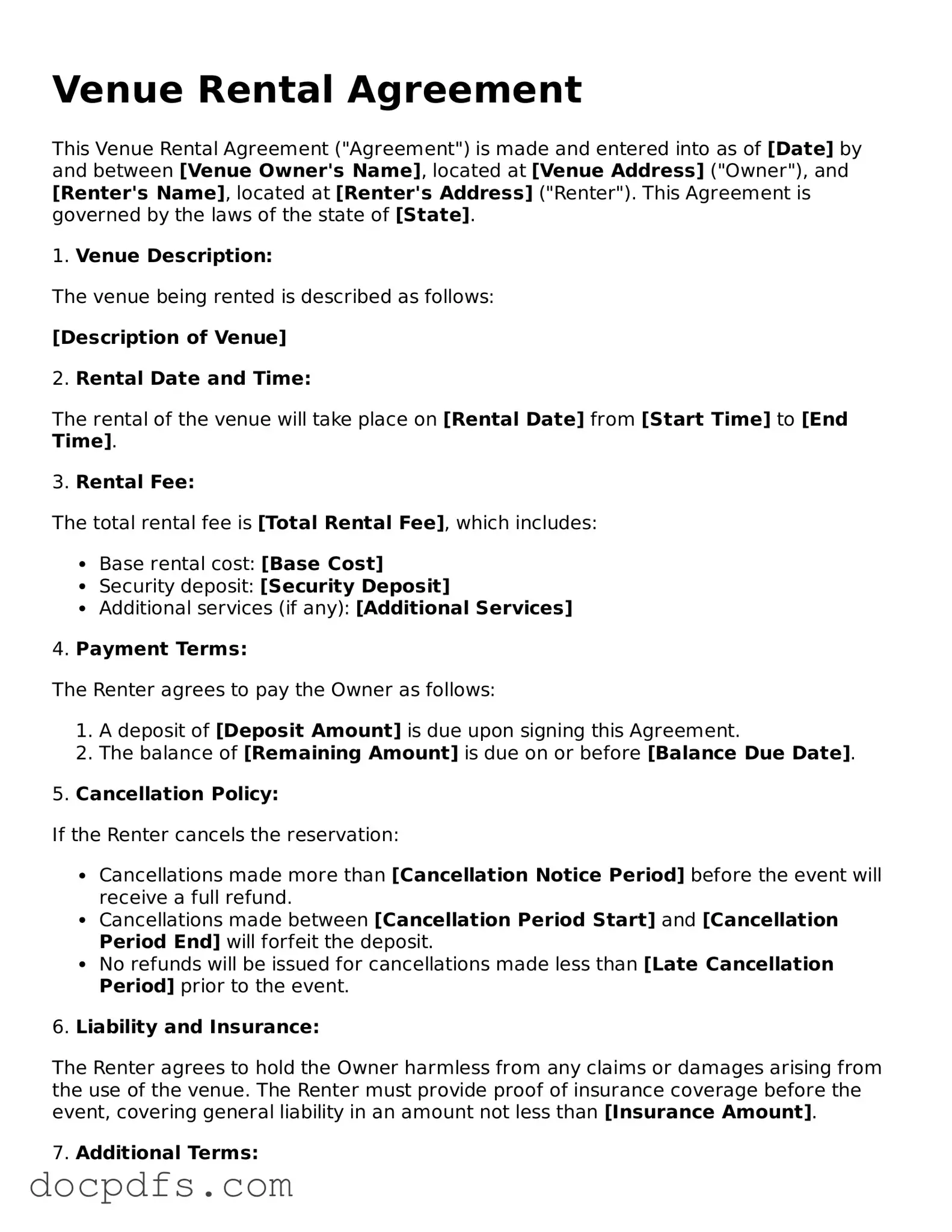Legal Venue Rental Agreement Document
A Venue Rental Agreement is a legal document that outlines the terms and conditions for renting a space for events. This agreement protects both the venue owner and the renter by clearly stating responsibilities, payment details, and other important information. Understanding this form is crucial for anyone looking to host an event successfully.
Open Venue Rental Agreement Editor Now

Legal Venue Rental Agreement Document
Open Venue Rental Agreement Editor Now

Open Venue Rental Agreement Editor Now
or
⇓ Venue Rental Agreement
Finish this form the fast way
Complete Venue Rental Agreement online with a smooth editing experience.